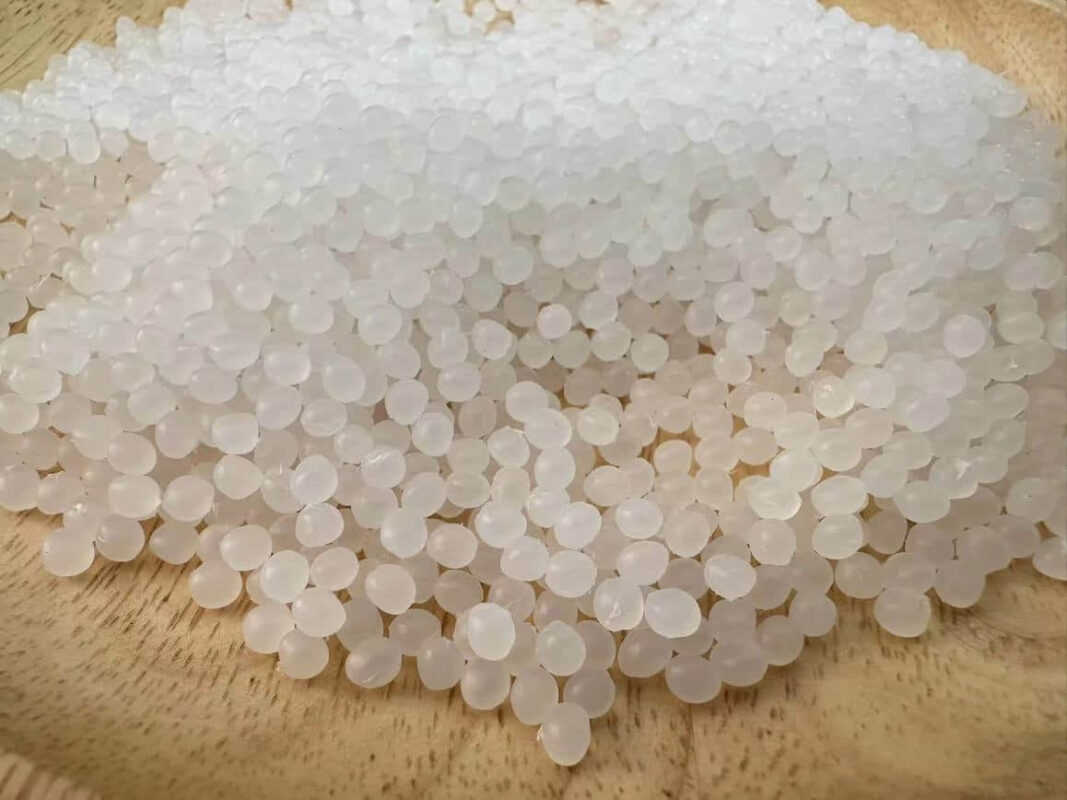Thermoplastic elastomers (TPEs) have gained widespread attention in various industries, from consumer products to medical equipment. As a versatile material, TPE offers the flexibility of rubber combined with the ease of processing found in plastics. However, a common question arises: Is thermoplastic elastomer safe?
- Understanding What TPE Means
TPE stands for thermoplastic elastomer, a type of polymer that combines the elasticity of rubber with the processing advantages of thermoplastics. TPEs can be easily molded and reshaped with heat, making them a popular choice in industries requiring high durability and flexibility.
There are different subtypes of TPE, each designed to serve specific needs:
TPE: The general term for thermoplastic elastomers, covering a range of flexible, durable materials.
TPR (Thermoplastic Rubber): Often used interchangeably with TPE, TPRs exhibit similar properties to rubber but are easier to mold and recycle.
TPV (Thermoplastic Vulcanizate): A specialized type of TPE that combines vulcanized rubber with thermoplastic, making it highly resistant to deformation and wear. TPV is commonly used in automotive applications for its excellent durability.
- The Safety of Thermoplastic Elastomers: Are They Safe?
Safety is a top priority in materials used for consumer products, medical devices, and industrial applications. Thermoplastic elastomers are generally regarded as safe, but let’s delve into why that is the case.
Non-Toxicity and Hypoallergenic Properties
One of the key reasons for TPE’s popularity in consumer goods is its non-toxic nature. TPE materials are often hypoallergenic, making them suitable for products that come into direct contact with skin, such as:
Medical devices: IV bags, catheters, and tubing
Baby products: Bottle nipples, pacifiers, and teething toys
Wearable products: Wristbands, grips, and protective gear
In comparison, traditional rubber and PVC materials may contain harmful chemicals like phthalates. TPEs are typically free from these additives, making them a safer alternative.
FDA and ROHS Compliance
Many TPE grades are FDA-approved and ROHS-compliant, especially those used in food and medical applications. This compliance ensures that TPE materials meet stringent safety and environmental standards. For applications requiring direct food contact, selecting FDA-approved TPE grades is essential to maintain safety.

TPR and TPV Safety
TPR and TPV, as subtypes of TPE, also meet high safety standards when manufactured and processed correctly. TPR materials are known for their rubber-like properties without containing harmful additives. TPV, meanwhile, is highly resistant to chemicals and extreme temperatures, making it ideal for automotive and industrial uses. However, when selecting materials, it’s crucial to ensure they meet relevant certifications for the intended application.
- Key Applications of Thermoplastic Elastomers
Consumer Products
Thermoplastic elastomers are used widely in household and consumer goods. Due to their flexibility, durability, and safety, TPEs are common in products that require repeated bending or stretching, such as:
Phone cases
Headphone wires
Exercise bands
Medical and Food Applications
The hypoallergenic and non-toxic properties of TPEs make them safe for products that require strict hygiene. TPEs are often used in medical devices and food-safe applications, including bottle nipples, cutting boards, and food storage containers.
Automotive and Industrial Uses
In the automotive industry, TPEs (especially TPV) are valued for their durability and resistance to oils and harsh environments. TPV materials are ideal for automotive seals, gaskets, and other under-the-hood components that require long-term performance and resilience.
- Thermoplastic Elastomer Material Price and Market Availability
As TPE demand continues to grow, prices and availability have become important considerations for manufacturers. The price of TPE plastic can vary depending on the type (TPE, TPR, TPV), grade, and intended application. For instance:
General-purpose TPE: Tends to be more affordable and is widely available.
Specialized TPV: Typically more expensive due to its enhanced durability and performance features.
When searching for thermoplastic elastomer for sale, it’s essential to compare suppliers based on certifications, pricing, and compatibility with the application. The TPE market is highly competitive, with prices fluctuating based on global supply and demand trends.
- Environmental Impact and Recyclability of TPE Plastic
In today’s eco-conscious world, the environmental impact of materials is a key concern. TPEs offer a distinct advantage over traditional rubber and PVC due to their recyclability. Unlike conventional rubber, which is challenging to recycle, TPE plastic can be melted and reprocessed multiple times, minimizing waste.
Recycling Process
The recycling process for TPE involves collecting and re-melting the plastic, allowing it to be reformed into new products. This process is energy-efficient and helps reduce waste, making TPE a more sustainable option.
Biodegradable and Biobased TPE Options
Some manufacturers have developed biobased TPEs that include renewable raw materials, making them even more eco-friendly. Although not fully biodegradable, these biobased TPEs reduce reliance on fossil fuels and help lower the environmental footprint.
- Selecting Safe Thermoplastic Elastomers for Your Needs
When choosing TPE, TPR, or TPV materials, consider the following factors to ensure safety and performance:
Intended application: Medical and food-safe products should prioritize FDA-approved TPE grades.
Performance requirements: For applications requiring extreme durability or chemical resistance, TPV is often the best choice.
Environmental impact: Recyclable and biobased TPE options are preferable for companies aiming to minimize their environmental impact.

- Conclusion: Is Thermoplastic Elastomer Safe?
In conclusion, thermoplastic elastomers are generally safe, especially when compared to traditional materials that may contain harmful additives. TPE, TPR, and TPV each offer unique advantages tailored to specific applications, whether in consumer products, medical equipment, or automotive parts. Their non-toxic, hypoallergenic properties, coupled with FDA and ROHS compliance, make TPEs a trusted choice in various industries.
As a recyclable, adaptable, and eco-friendly material, TPE plastic represents the future of safe, sustainable manufacturing. When purchasing thermoplastic elastomer for sale, consider reputable suppliers who meet the necessary safety standards and provide competitive thermoplastic elastomer material price points.





